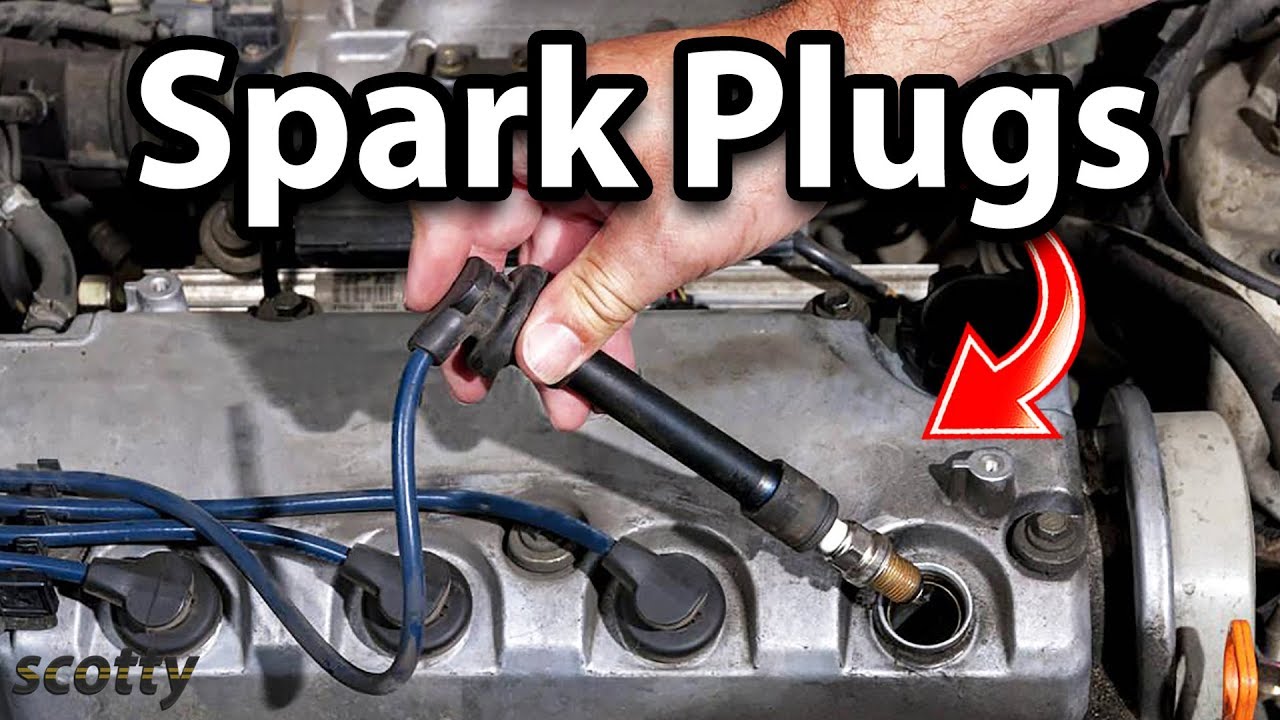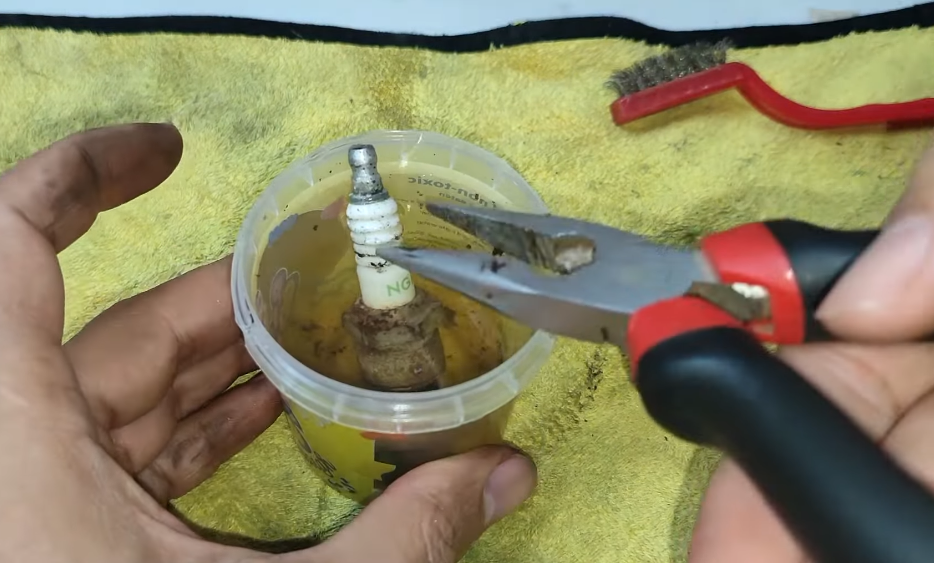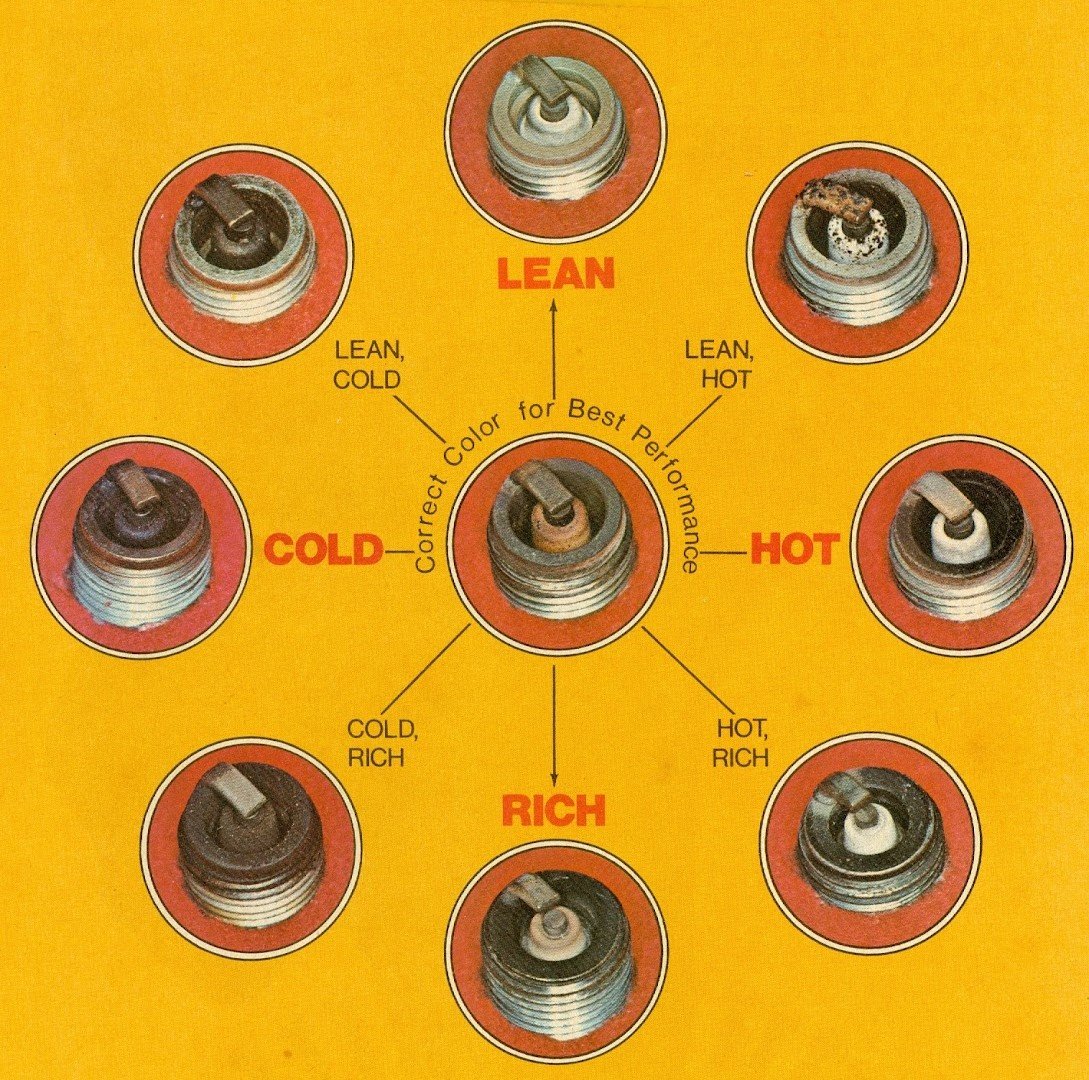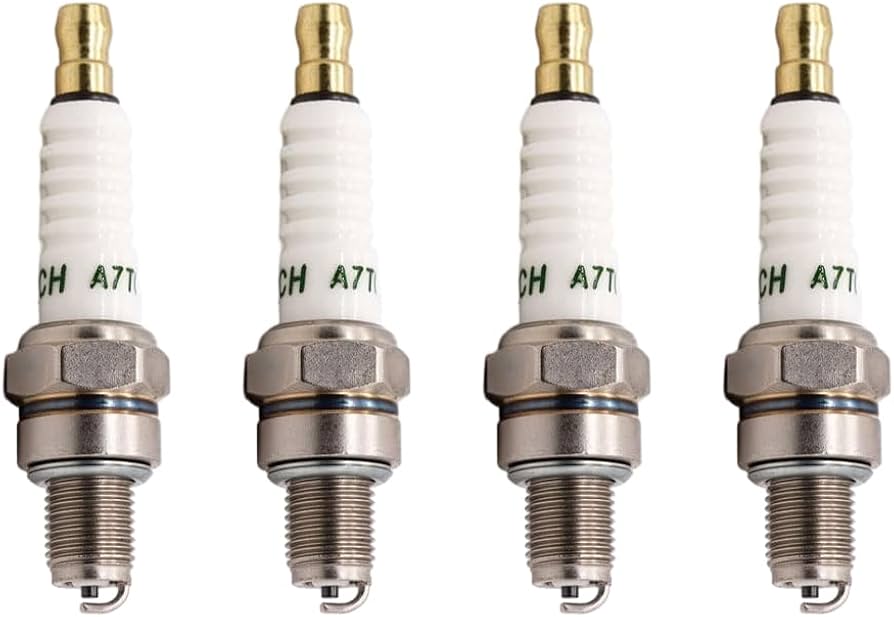Can spark plug wires cause misfire? Yes, spark plug wires can cause a misfire if they are damaged, worn, or corroded. When these wires fail to deliver the proper electrical charge to the spark plugs, it can lead to poor combustion, resulting in engine misfires, rough idling, and decreased performance.
Misfires occur when the air-fuel mixture in the engine cylinder does not ignite properly. This can happen for a number of reasons, and one of the most common culprits is a problem with the spark plug wires. Spark plug wires deliver the necessary electrical charge from the ignition system to the spark plugs, which is critical for the combustion process.
When the spark plug wires are faulty, they can cause a weak or inconsistent spark, leading to misfires. Knowing how spark plug wires work and how they can fail is important for diagnosing engine performance issues.
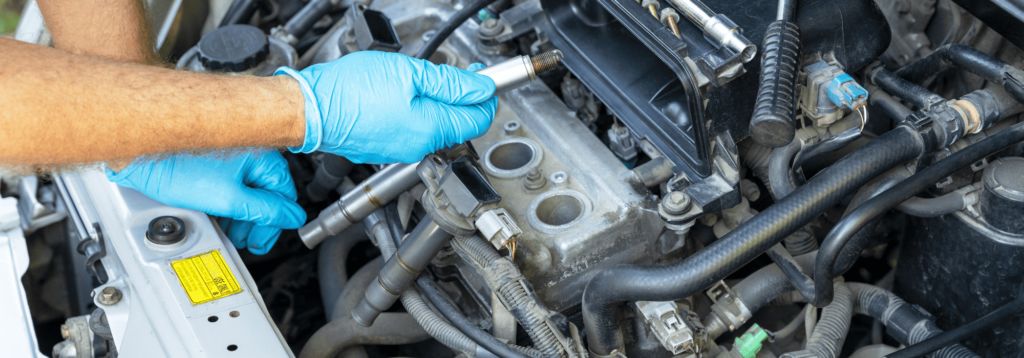
Contents
- 1 How Do Spark Plug Wires Work?
- 2 Frequently Asked Questions
- 3 Conclusion
How Do Spark Plug Wires Work?
Spark plug wires are part of the ignition system that carries electrical current from the ignition coil to the spark plugs. The spark plugs ignite the fuel-air mixture inside the engine cylinders, allowing the car to run smoothly.
The ignition system relies on a smooth flow of electricity. The spark plug wires act as the conduit for this electricity, transferring it from the coil to the plugs. If the wires are compromised in any way, they may not provide a strong enough spark to ignite the fuel, causing the engine to misfire.
Signs That Spark Plug Wires May Be Causing Misfires
A misfire can be frustrating and affect the car’s performance. Here are some signs that faulty spark plug wires might be the issue:
1. Rough Idling
When the spark plug wires are not functioning properly, the engine may idle roughly. This can happen because the spark plugs aren’t getting the correct amount of electricity to fire properly, leading to an unstable idle.
2. Engine Stuttering
Engine stuttering or hesitation when accelerating is another sign that the spark plug wires might be faulty. If the wires cannot deliver enough power to the spark plugs, the engine can stutter or hesitate as it struggles to ignite the air-fuel mixture properly.
3. Decreased Power and Acceleration
If your car feels sluggish or lacks power during acceleration, it could be a result of weak sparks. This can happen when the spark plug wires are old, damaged, or worn out, preventing the ignition system from working optimally.
4. Check Engine Light
A misfire caused by faulty spark plug wires can trigger the check engine light. If the wires are not delivering the necessary electrical current, the engine management system will detect irregularities in the ignition process and turn on the check engine light.
5. Poor Fuel Efficiency
If you’ve noticed a significant drop in the vehicle’s fuel efficiency, spark plug wires could be to blame. Misfires lead to incomplete combustion, which wastes fuel and causes the engine to work harder to maintain speed.
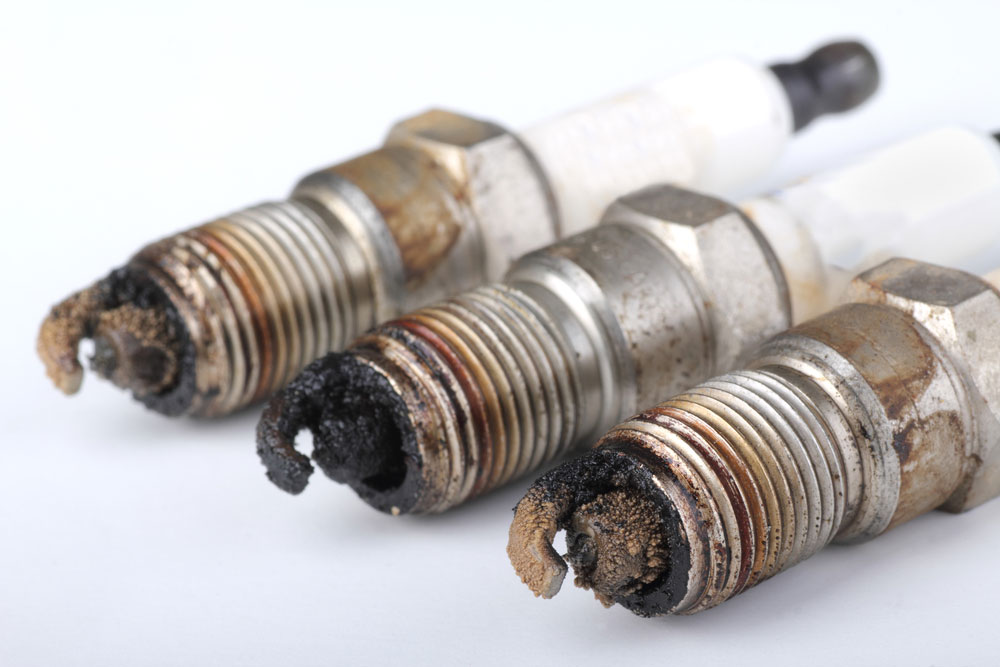
How Spark Plug Wires Fail and Cause Misfires
Spark plug wires can fail due to several reasons, leading to misfires. Here’s how they can break down:
1. Wear and Tear
Over time, spark plug wires can wear out due to constant exposure to heat and electrical current. As the wire insulation deteriorates, it can lead to electrical leakage or shorts, preventing the spark plugs from receiving enough power.
2. Corrosion
The ends of the spark plug wires, where they connect to the spark plugs, are susceptible to corrosion. Corroded connectors can prevent the wires from making proper contact with the spark plugs, leading to poor performance and misfires.
3. Heat Damage
The engine bay is extremely hot, and spark plug wires are exposed to high temperatures. Over time, heat can break down the wire insulation, causing cracks and eventual failure. This can cause the wires to short-circuit, leading to a misfire.
4. Physical Damage
Spark plug wires can also be physically damaged by factors like vibrations, heat, or contact with moving parts. Any cuts, abrasions, or splits in the wire insulation can lead to misfires.
How to Diagnose a Misfire Due to Faulty Spark Plug Wires
Diagnosing a misfire can be tricky, especially for beginners. Here’s how you can check if faulty spark plug wires are causing the issue:
1. Inspect the Spark Plug Wires Visually
Look for any visible signs of wear or damage, such as fraying, cracks, or burn marks. If the wires appear worn out, they might be causing the misfire.
2. Check for Corrosion
Examine the ends of the spark plug wires where they connect to the spark plugs. If there is any corrosion or rust, this could be preventing a proper connection, leading to a misfire.
3. Perform a Spark Test
A spark test involves removing the spark plug wires and checking the spark at the end of the wire. If there is no spark or a weak spark, this could be a clear indication that the wires are faulty.
4. Use an OBD-II Scanner
An OBD-II scanner can read the codes from the vehicle’s computer. If a misfire is detected, the scanner will provide a code that can help you pinpoint the issue, whether it’s the spark plug wires or something else.
Can You Fix Spark Plug Wires Yourself?
If you’re experiencing misfires due to faulty spark plug wires, the good news is that it’s often a fixable issue. You don’t need to be an expert mechanic to replace the wires. Here’s how to do it:
1. Purchase the Right Spark Plug Wires
Make sure to buy spark plug wires that are compatible with the vehicle’s make and model. Check the car’s manual or ask an expert if you’re unsure about which wires to buy.
2. Remove the Old Wires
To replace the wires, you’ll need to remove the old ones one by one. Be careful not to pull on the wire itself—grab the boot (the rubber part that connects to the spark plug).
3. Install the New Wires
After removing the old wires, connect the new ones to the spark plugs and the ignition coil. Ensure they are securely attached, and the wires aren’t loose or improperly connected.
4. Test the Vehicle
Once you’ve installed the new wires, start the vehicle and check for any improvement in engine performance. If the misfire stops, you’ve likely solved the issue.
How to Prevent Spark Plug Wire Misfires
Preventing spark plug wire failure is essential to keep the vehicle running smoothly. Here are some tips to extend the life of the spark plug wires:
1. Regular Inspections
Check the spark plug wires regularly for signs of wear or damage. Early detection can help prevent major engine issues.
2. Avoid Overheating
Try to keep the engine temperature under control to prevent excessive heat from damaging the wires.
3. Replace Wires on Time
Spark plug wires should be replaced every 30,000 to 50,000 miles, depending on the vehicle’s make and model. Regularly replacing them can prevent future misfires.
Frequently Asked Questions
Here are some FAQs about spark plug wires cause misfire –
1. How do I know if my spark plug wires are bad?
Signs of bad spark plug wires include rough idling, engine stuttering, decreased acceleration, poor fuel efficiency, and the check engine light turning on.
2. How long do spark plug wires last?
Spark plug wires typically last between 30,000 to 50,000 miles, depending on the type of wire and the driving conditions.
3. Can a misfire damage the engine?
Yes, if misfires are frequent and not addressed, they can lead to engine damage due to incomplete combustion and overheating of engine components.
4. Can spark plug wires be repaired instead of replaced?
It’s generally recommended to replace spark plug wires if they are damaged or worn out, as repairing them may not offer a long-term solution.
5. Is it easy to replace spark plug wires?
Replacing spark plug wires is relatively easy for beginners, as long as you follow the correct procedure and use the right tools.
Conclusion
Yes, spark plug wires can certainly cause engine misfires. When they are damaged or worn out, they can’t deliver the proper electrical charge to the spark plugs, leading to poor engine performance, stuttering, rough idling, and even decreased fuel efficiency.

